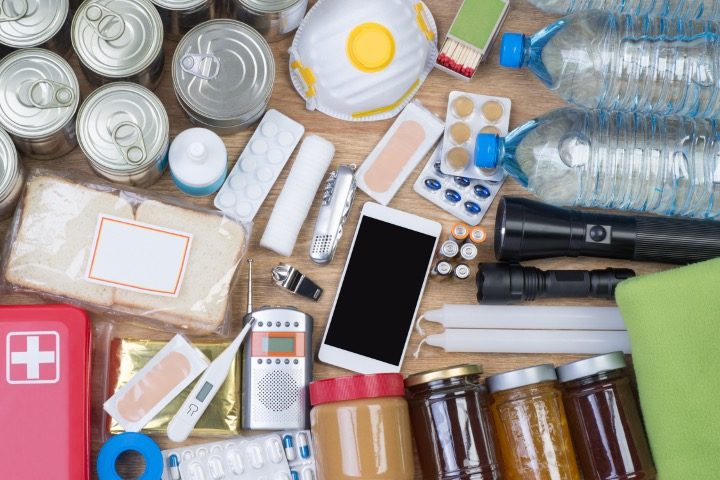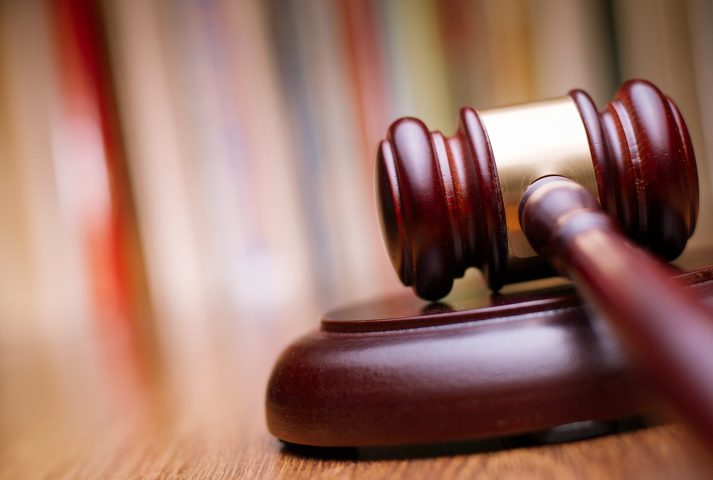
With the 2024 election on the horizon and the political climate tense, more millennials and Generation Z Americans are anticipating worst-case scenarios and preparing accordingly.
According to a survey by Finder.com earlier this year, young Americans are prepping more than their older counterparts, with 39 percent of American millennials and 40 percent of Gen Zers saying they spent money on disaster prepping in the last 12-month period. Meanwhile, only 29 percent of the American population in general invested in disaster preparedness.
The numbers were not as high as they were during the pandemic — at Covid-19’s height in 2021, 58 percent of millennials and 59 percent of Gen Zers reported making disaster-preparedness purchases. Nevertheless, the figures from this year are higher than those of pre-Covid years.
Fox News notes that the fears motivating young people to prep have, in part, been fueled by their experiences with the Covid-19 outbreak.
“The number of sites I think that were selling these [emergency preparedness] things or the number of places that were offering this type of stuff on the Internet was very scarce [in 2017]. Obviously, then we got into COVID, which created its own dilemmas and own kind of prepping in a different bit of craziness, as I would call it,” said Patrick McCall, president of the McCall Risk Group, in a statement to Fox News.
Chad Huddleston, a professor of anthropology at Southern Illinois University, said: “In my work, I see younger people worried about a repeat of a COVID-type event and the types of disruption it can bring to daily life.”
McCall and Drew Miller, CEO of Fortitude Collapse Preparedness and Fortitude Ranch, also gave their opinion that the 2024 election is stirring the need to prepare in young people on both sides of the political aisle, with McCall telling Fox:
I think a lot of these people are belonging to these social media groups where, you know, they may be scrolling one day, somebody that they’re either following or somebody that’s related to somebody that they’re following said something about a disaster coming up, or they reference this election that’s coming up or some stuff that’s going on overseas. And they seem to say, well, this person went out and bought this. It’s kind of a jumping on the bandwagon-type deal.
Miller was even more explicit, contending that for many people there are very real fears of a potential civil war resulting from the fallout of next year’s election. “I guess a lot of it is driven by the concern over [a] possible civil war next year if the election goes badly, as many people think it will,” he said.
Huddleston, seemingly at odds with Miller in his assessment, argued that the prepping many young people are currently engaging in is different from the “doomsday” activities typically associated with the term “prepping.” According to Huddleston, most of those doing prepping today are spending on essentials such as food, water, and toiletries.
“I would not categorize this behavior as ‘prepping’ or ‘doomsday prepping.’ The vast majority of people buying some extra toilet paper and canned goods while shopping are not preppers. Preppers take on those activities as part of their identity based in adaptive behaviors. For the most part, this is not that and, in my work, I have not seen younger people decrying the end of society or any kind of ‘civil war,’” Huddleston said.
He added that the current tendency toward preparedness spending owes more to “the lack of goods on store shelves during the pandemic” and less to “any idea that society is going to come to some chaotic, collapse point.”
Brekke Wagoner is a millennial who runs the YouTube prepping channel Sustainable Prepping. Speaking with Fox News, he speculated that prepping activities will rise as politics become more divisive and unstable.
“I think for the first time, a lot of Millennials and Gen Zers are realizing how fragile our systems are. We’ve grown up in a time in which technology has meant we’ve had grocery stores that were always stocked and you can get anything from Amazon in 24 hours. Then all of a sudden the pandemic and some uncertainties in our national and international politics has made us rethink how all of these systems are not as stable as we assumed,” Wagoner told the outlet.
Democrats and the mainstream media have certainly exacerbated such tensions with the almost-universal rhetoric describing Donald Trump and his supporters as seeking to establish a dictatorship.
It has become such a common talking point that even conservative media figure Sean Hannity, during a recent town hall event with Trump, asked the 45th president whether he plans to be a dictator, to which Trump responded, “Except for day one … we’re closing the border and we’re drilling, drilling, drilling. After that, I’m not a dictator.”
The media’s rhetoric has a clear purpose, which is to incite the Left to violence on the grounds that “Dictator Trump” should be removed forcibly if he wins the election.
Given the lamentable realities of contemporary American politics, young people who are preparing themselves and their homes for the worst-case scenario are making the right decision.
Shop For Night Vision | See more…
Shop For Survival Gear | See more…
-
Sale!

Tactical Camo Nylon Body Armor Hunting Vest With Pouch
Original price was: $49.99.$39.99Current price is: $39.99. Select options This product has multiple variants. The options may be chosen on the product page -
Sale!

Mesh Shooting Hunting Vest with Multi Pockets
Original price was: $59.99.$39.99Current price is: $39.99. Add to cart


















































